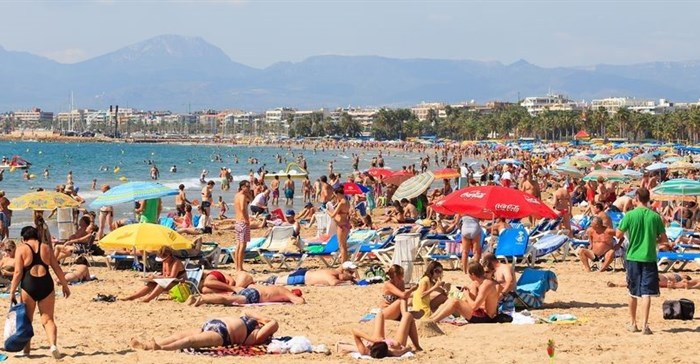
Related
Top stories






More news


Marketing & Media
Ads are coming to AI. Does that really have to be such a bad thing?














In a study published in the International Journal of Biometeorology, we looked at how often tourists commented on the weather across a total of 5898 TripAdvisor reviews of 19 destinations across South Africa. TripAdvisor is an online platform where tourists can post reviews of a destination. The website is considered to be the worlds’ leading information platform for travel-related decisions, representing the largest global network of tourists. The reviews considered in this study were posted in 2016.
We found that only 7.9% of the reviews mentioned the weather. Tourists visiting Durban in KwaZulu-Natal were the most satisfied with the weather conditions. Belfast, a town in the Mpumalanga province, and Bethlehem in the Free State received the most frequent complaints about the weather.
Reviewers from the UK mentioned the weather most frequently: although they represented only 9% of the 5898 TripAdvisor reviews, a significant number of UK visitors – 14.2% – mentioned the weather. European visitors frequently commented on the hot weather, compared to visitors from Africa, the Middle East, the Americas and Australasia.
This study reveals important nuances in tourists' experiences of South African weather. Many of these confirm common sense assumptions. But data is valuable because it allows policymakers to develop concrete climate change strategies that can be implemented in different parts of the country.
Climate change forecasts indicate that global temperatures are likely to increase by about 4°C by 2100. This means that extreme weather conditions will be more frequent and more severe.
Tourists are likely to feel more dissatisfied by the weather, and online platforms mean that their word-of-mouth complaints will be far-reaching.
Regions that rely heavily on outdoor tourism must adapt to counter climate change threats and survive as tourist attraction sites. The study proposes two ways in which this can be done.
The first strategy is marketing – advertising should better prepare tourists for the weather they’re likely to experience during their vacation to enhance satisfaction. While marketing sunny skies and comfortable temperature attracts tourists, misinformation increases the likelihood of negative reviews and poor word-of-mouth when visitors return home.
Playacar, in Mexico, faced similar challenges in the wake of global climate change where beach erosion resulted in a very different aesthetic to what was advertised in travel brochures.
The second is accommodation. Accommodation establishments must address the climatic stresses their visitors feel most acutely if they want to increase the chances of their return. Service providers should manage indoor temperatures, reduce the noise levels of wind in the upper floor rooms and assist guests in avoiding the rain when they arrive at the hotel. Reduced water usage should be managed without being a hindrance to the guests.
Afriski, one of Africa’s two ski resorts, successfully managed to provide a ski experience while moderating the indoor temperatures to provide guests with comfortable sleeping conditions.
The climatic factors mentioned in TripAdvisor reviews depended heavily on the quality of the accommodation. Those who stayed in backpackers, bed and breakfasts or guesthouses that were either unrated or had a Tourism Grading Council of South Africa 1 star rating cited hot and cold conditions more than any other climatic factors. They represented the group that mentioned temperature most often.
This is probably because these service providers don’t have air conditioners to moderate temperatures and often don’t even have fans, electric blankets or effective insulation. Visitors who stayed in hotels with a five-star rating mentioned the wind, rain and drought most frequently; they very seldom had issues with the temperature.
These tourists could likely control the temperature of their hotels' rooms and the vehicles they were travelling in but would not have been able to escape the rain and wind while out and about. They experienced drought conditions more acutely because water restrictions mostly affect the use of baths, jacuzzis and swimming pools. Tourists in one-star accommodation wouldn’t have access to these facilities.
Interestingly, hot conditions were mentioned most frequently by visitors from Europe, accounting for 30% of all of their climatic mentions. Cold conditions were mentioned mostly mentioned by visitors from the Middle East and Australasia. This can broadly be explained by the climate that tourists experience in their home country, which in turn determines their thermal sensitivity outside of this range.
Mentions of cloud cover and a lack of sunshine were more common than reports of rain for visitors from Europe, the Middle East and Australia. This could be because of aggressive of marketing campaigns targeting these regions that create an impression of year-round sunshine across the country.
Research into climate change and tourism in South Africa faces a considerable challenge from a lack of data. Models developed in the global North are often impossible to run as we do not have a sufficient records of the required data. This study reveals the value of TripAdvisor reviews and provides insight into tourists’ experiences of weather, from which adaptation plans can be successfully implemented.![]()
This article is republished from The Conversation under a Creative Commons license. Read the original article.

The Conversation Africa is an independent source of news and views from the academic and research community. Its aim is to promote better understanding of current affairs and complex issues, and allow for a better quality of public discourse and conversation.
Go to: https://theconversation.com/africa